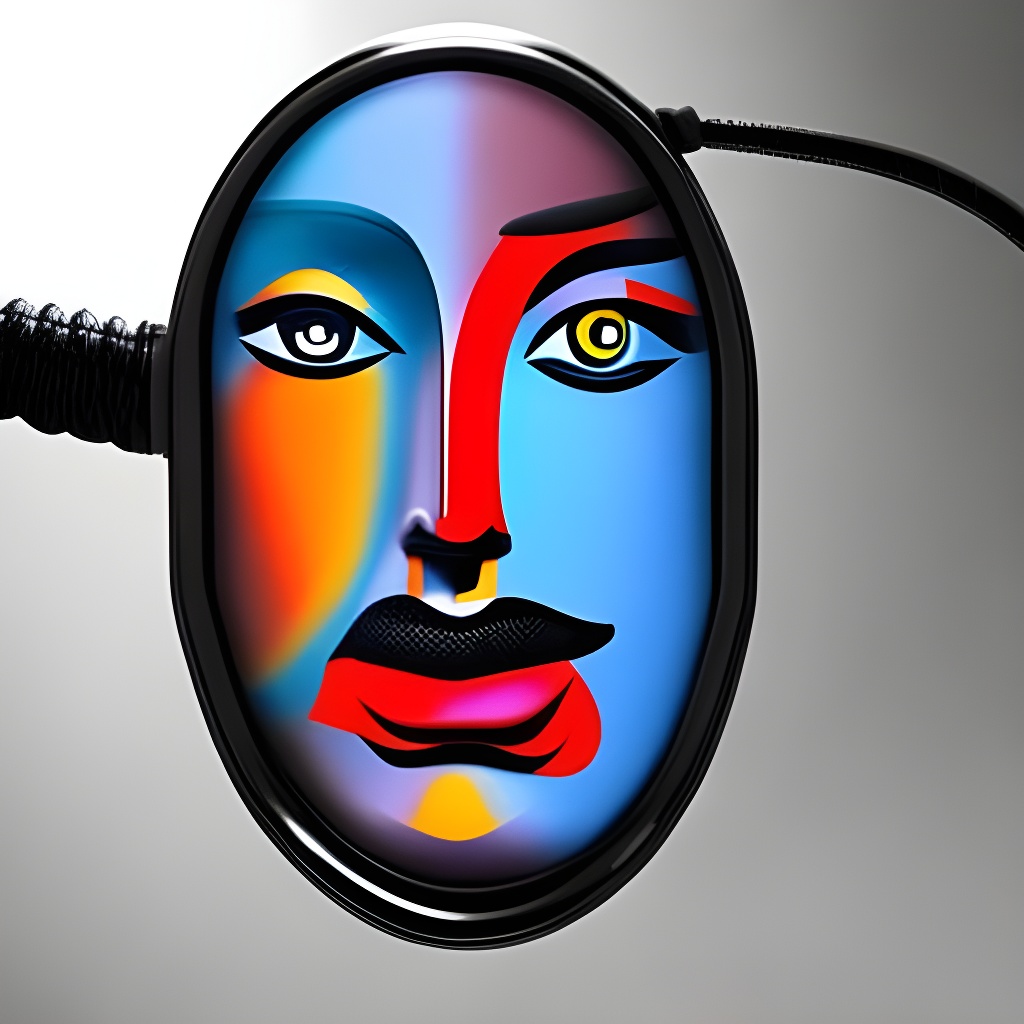Facial Recognition in a Store Near You

The above image was made with stable diffusion using the prompt 'face in a phone.'
Technologies of repression are trending. A recent Scheer Post article titled "Digital Privacy Legislation is Civil Rights Legislation" included the following quote:
Special concerns are raised when brick-and-mortar stores use face recognition technology to screen all of their potential customers to exclude supposedly unwanted customers. Many stores have long used this technology to try to detect potential shoplifters, often relying on error-prone, racially biased criminal justice data. Madison Square Gardens was recently caught using this technology to exclude employees of a law firm that sued the venue’s parent company.
Although facial recognition tech isn't new, I was surprised to learn how far it's spread. Companies like Walmart and Rite Aid are embracing facial recognition to identify undesirables. While I understand the desire to keep shoplifters out of stores, the tech can also be used for less reasonable purposes.
Three Problems
It seems likely that we'll someday soon have a facial recognition phone app that tells us who the people around us are. In a way, this might even be a good thing. We evolved to live in Dunbar-sized communities where everyone knows everyone. The modern world routinely puts in touch with crowds of strangers. If an app made these crowds of strangers into people with names, that might help us get along with each other better.
There are three problems with this that I see. Any facial recognition system has a high potential for abuse by stalkers and other predators. Also, the tech is inherently dehumanizing, as it reduces people to mathematical identities. "I'm sorry, the computer says I can't let you in," sounds very dystopian. And this points to the third problem I see with facial recognition tech, which is simply that it's creepy.
The use of facial recognition by law enforcement is particularly troubling. Early versions of the tech are totally racist and subject misidentification is common. That's a recipe for disaster when the stakes are high.
Despite these problems, this and other technologies of repression will continue to proliferate. And they probably won't make anything any safer. I'm reminded of the gas station across from the coffee shop in my neighborhood. Shoplifting, fights, and the occasional gunfight were happening at the gas station, so they put in a solar powered surveillance tower that announces every few minutes that the area is being recorded.
Unsurprisingly, the criminals were undeterred. They're used to being recorded everywhere. They just do their crimes like normal while the surveillance tower barks empty threats at them. If the gas station starts identifying them with facial recognition and refusing them service, maybe they'll have their gunfights somewhere else.
Read my novels:
- Small Gods of Time Travel is available as a web book on IPFS and as a 41 piece Tezos NFT collection on Objkt.
- The Paradise Anomaly is available in print via Blurb and for Kindle on Amazon.
- Psychic Avalanche is available in print via Blurb and for Kindle on Amazon.
- One Man Embassy is available in print via Blurb and for Kindle on Amazon.
- Flying Saucer Shenanigans is available in print via Blurb and for Kindle on Amazon.
- Rainbow Lullaby is available in print via Blurb and for Kindle on Amazon.
- The Ostermann Method is available in print via Blurb and for Kindle on Amazon.
- Blue Dragon Mississippi is available in print via Blurb and for Kindle on Amazon.
See my NFTs:
- Small Gods of Time Travel is a 41 piece Tezos NFT collection on Objkt that goes with my book by the same name.
- History and the Machine is a 20 piece Tezos NFT collection on Objkt based on my series of oil paintings of interesting people from history.
- Artifacts of Mind Control is a 15 piece Tezos NFT collection on Objkt based on declassified CIA documents from the MKULTRA program.
I'd be surprised if you didn't hear about it, but in case you didn't, https://www.vice.com/en/article/k7ekmv/facebook-facial-recognition-app
Thanks! I hadn't seen that particular story before.
Cool AI image!
I'm torn between arguments that argue for government regulation and those that argue against it when it comes to emerging technologies. My idealistic self sees a future in which these technologies are regulated and limited to a set of ethical norms and rules created by the people (or by lawmakers with public interest in mind). Taking the corporate control/profits out of the process of technology innovations and its integration with society is a great vision to me. Yet given the current captured state of pretty much every single government agency, this feels like a pipe dream.
When it comes to emerging technologies, I favor minimal legal regulation but strong social regulation. What we really need more of are opportunities to say, "We're not playing."
Right. And what we're doing at WantToKnow is meaningful because we're providing education that can give rise to collective understanding of why we shouldn't play this game.